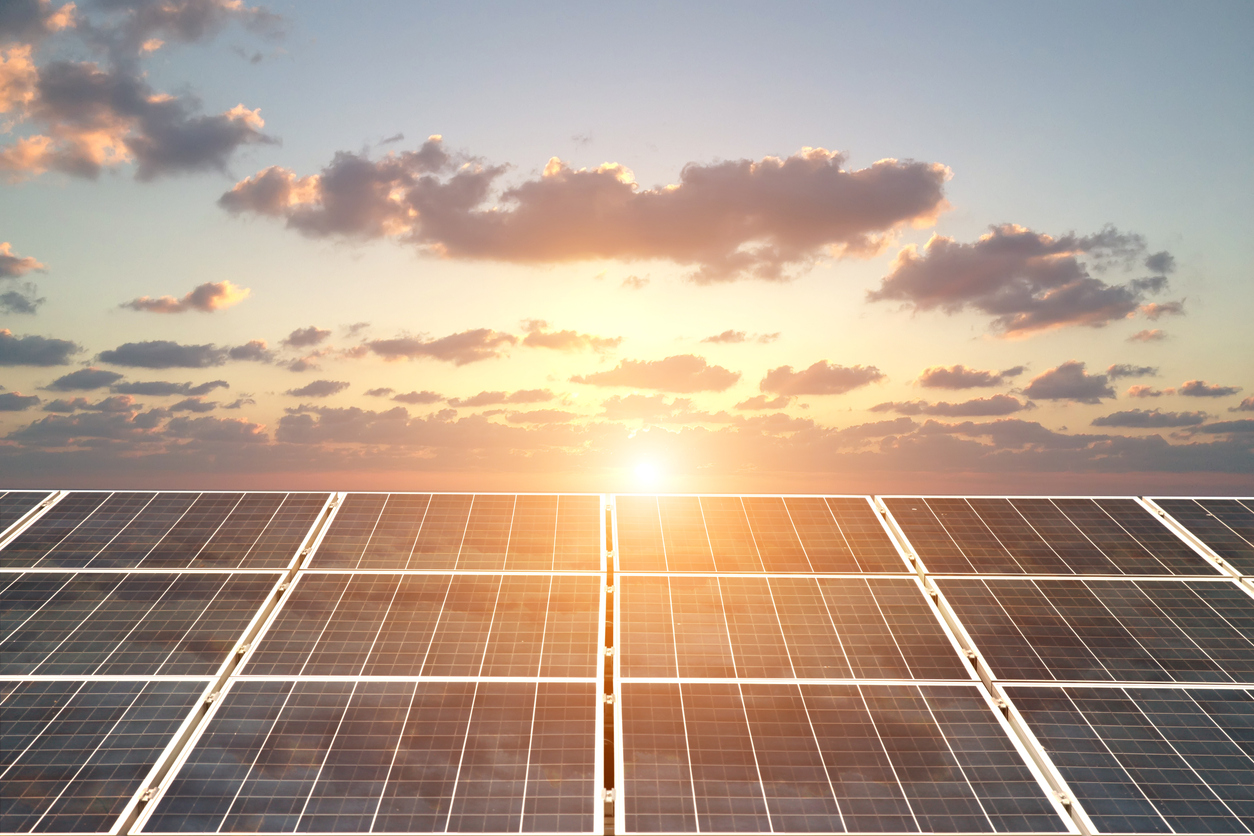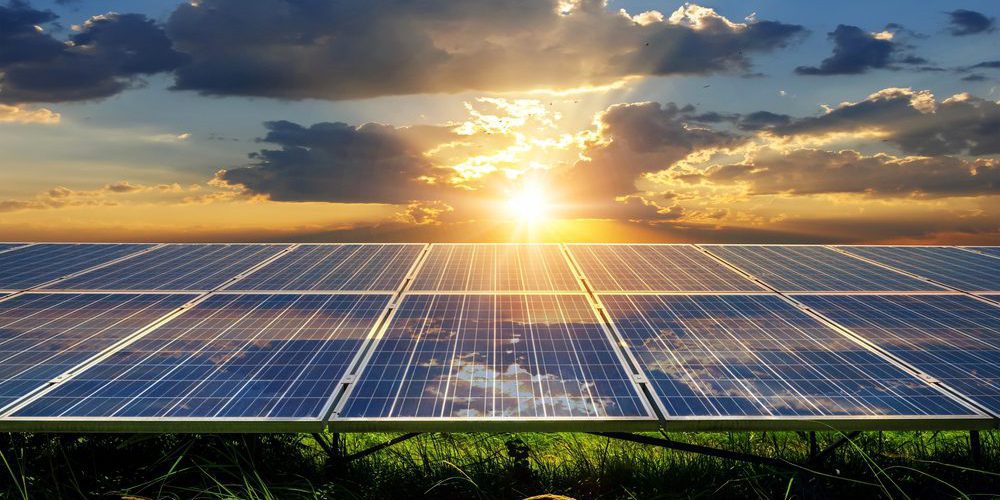Protect your home with sustainable energy solutions using Solar Panels.
Protect your home with sustainable energy solutions using Solar Panels.
Blog Article
Take Full Advantage Of Energy Savings With High-Quality Solar Panels
Taking full advantage of power financial savings via using high-quality photovoltaic panels is a complex strategy that needs mindful consideration of technology, installation, and maintenance. Choosing high-efficiency choices, such as monocrystalline panels, can substantially boost electrical power generation, while toughness and guarantee terms play a critical duty in long-lasting monetary practicality. Understanding the capacity for government motivations can magnify the return on investment. The trip does not end with the purchase; the nuances of setup and recurring maintenance are just as crucial to accomplishing optimum results. What aspects should home owners prioritize to guarantee they realize these benefits completely?
Advantages of Solar Power
The benefits of solar power are numerous and considerable, making it a significantly appealing choice for both domestic and commercial applications. Among the key benefits is its possible to lower electricity expenses. By utilizing sunshine, home proprietors can generate their very own power, reducing reliance on traditional utility sources and eventually bring about significant cost savings.
One more crucial advantage is environmental sustainability. Solar power is a clean, renewable energy that assists to mitigate greenhouse gas emissions, adding to a reduction in air pollution and climate adjustment. This aligns with international efforts to change towards more lasting energy remedies.
Additionally, solar energy systems can enhance home worth. Residences and businesses furnished with photovoltaic panels typically have greater resale values, attracting environmentally-conscious purchasers and financiers. In addition, federal government rewards, such as tax credit ratings and rebates, can counter installment expenses, making solar energy a lot more monetarily viable.
Finally, solar technology advertises energy self-reliance. By buying solar power, people and services can lower their vulnerability to fluctuating energy prices and supply disturbances, fostering higher control over their energy sources. Jointly, these benefits highlight the compelling factors to take into consideration solar power solutions.
Picking the Right Solar Panels
Selecting the appropriate photovoltaic panels is a vital step in maximizing the efficiency and benefits of a solar power system. When evaluating photovoltaic panels, numerous aspects ought to be taken into consideration to guarantee ideal efficiency and long-term savings.
First, examine the panel's efficiency ranking, which shows how successfully it transforms sunlight into electrical energy. Greater effectiveness panels may have a higher upfront price however can produce more energy in minimal room. Next, take a look at the guarantee supplied by the producer; a longer warranty typically shows a greater level of self-confidence in the product's longevity and efficiency.
Additionally, think about the type of solar panel technology. Monocrystalline panels are understood for their high effectiveness and space-saving design, while polycrystalline panels tend to be more cost effective yet a little much less reliable. Bifacial panels, which capture sunlight from both sides, are also acquiring appeal for their potential to improve power output.
Finally, conduct a comprehensive evaluation of independent performance rankings and client evaluations to determine reliability and complete satisfaction. By very carefully thinking about these elements, home owners can make informed choices that straighten with their energy requirements and monetary goals, ultimately boosting the roi for their solar power systems.
Comprehending Installation Costs
Understanding the costs connected with mounting photovoltaic panels is vital for homeowners seeking to spend in renewable resource. The total installment expense can vary considerably based upon several elements, consisting of system size, panel kind, installment intricacy, and geographic location.
Generally, the expense is relied on a per-watt basis, with typical costs varying from $2.50 to $3.50 per watt prior to any kind of incentives. A conventional household system could set you back between $15,000 and $25,000, depending on power requirements and the selected components.
Along with the panels themselves, homeowners need to think about expenses associated with inverters, mounting equipment, and electric upgrades. Labor expenses additionally play a critical role, as specialist setup ensures conformity with security criteria and local laws.

Inevitably, comprehending these installation expenses and possible economic advantages is important for homeowners to make enlightened decisions regarding transitioning to solar power.

Upkeep for Long-Term Financial Savings
Maintaining solar panels is important for making best use of long-term power cost savings and guaranteeing the system operates at peak effectiveness. Normal upkeep entails several vital practices that can considerably improve the longevity and efficiency of solar installments.
First, regular evaluations need to be conducted to recognize any physical damages or wear, such as splits or loosened links. Cleansing the panels is additionally essential, as dust, dirt, and particles can block sunlight, minimizing power output (Solar Panels). It is suggested to clean the panels a minimum of twice a year, or more frequently in locations with high levels of dust or contamination
In addition, keeping track of the system's performance through a monitoring software program can offer real-time data on power production and alert homeowners to any type of abnormalities. This aggressive technique enables for prompt click repair services, decreasing downtime and preserving optimal power generation.
Ecological Effect of Solar Power
The environmental impact of solar power expands much beyond its prompt advantages of lowering power expenses and reliance on fossil gas. By using sunlight, solar power considerably decreases greenhouse gas discharges, therefore minimizing climate modification. Unlike traditional energy sources such as coal or all-natural gas, solar power generation does not produce air toxins, contributing to improved air top quality and public health and wellness.
Additionally, solar power promotes biodiversity by minimizing the requirement for fossil gas removal, which commonly disrupts ecosystems and environments. By transitioning to renewable energy resources, we can maintain all-natural landscapes and protect threatened species from environment loss.
The life cycle of solar panels additionally presents a reduced environmental impact contrasted to conventional power resources - Solar Panels. While producing photovoltaic panels involves some resource use and exhausts, innovations in modern technology and recycling processes are continuously lowering these effects. Additionally, the long-lasting advantages of solar power-- such as lowered reliance on limited sources-- much outweigh these initial prices
Verdict
In recap, the fostering of top notch photovoltaic panels offers substantial chances for power financial savings and environmental advantages. By selecting proper innovations, such as monocrystalline panels, and making certain effective setup, house owners can optimize power generation in minimal rooms. Furthermore, recognizing installation costs and maintenance requirements better adds to long-term savings. The critical positioning of photovoltaic panel selections with power view it now needs and federal government incentives boosts roi, advertising sustainability and decreasing reliance on standard power resources.
Report this page